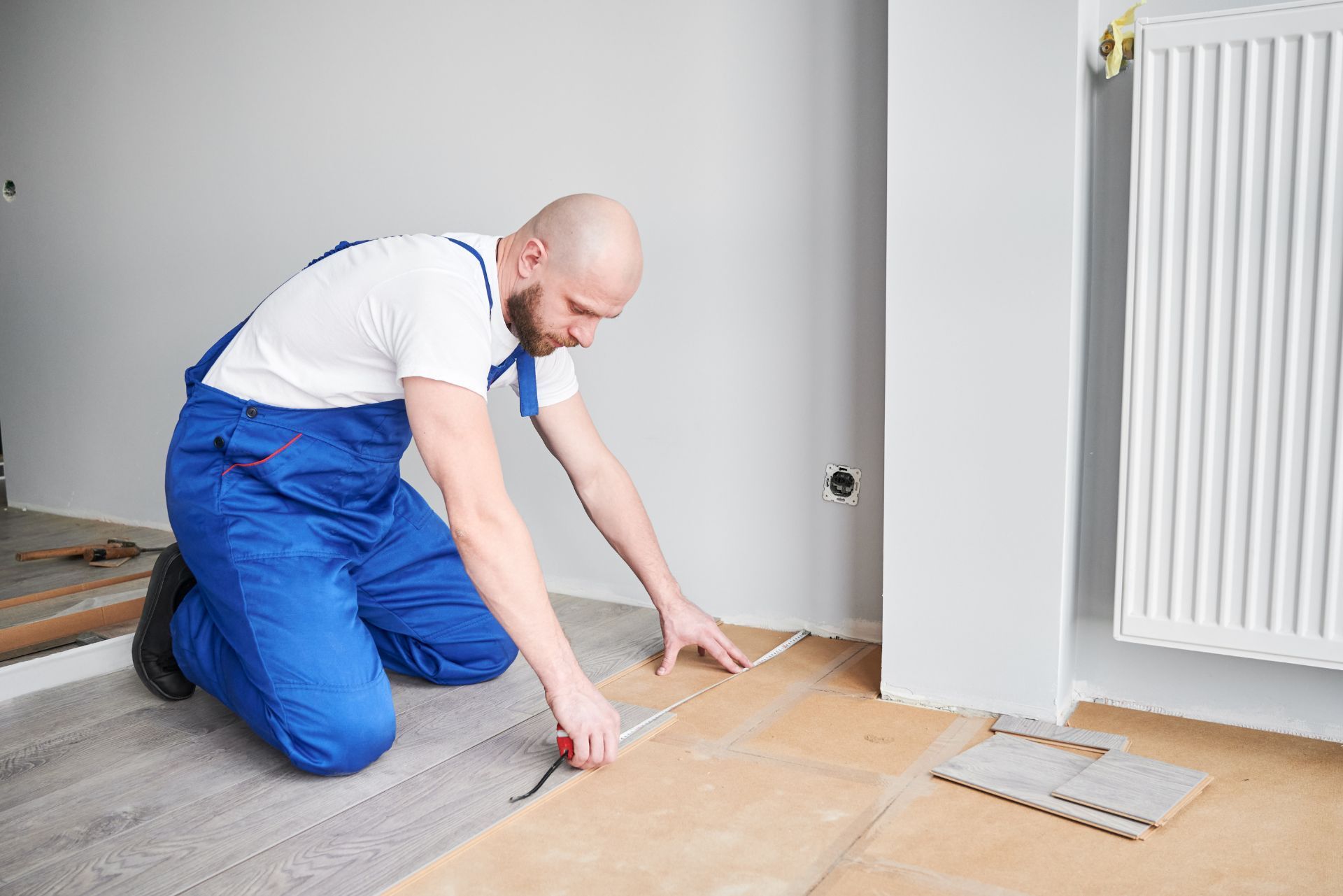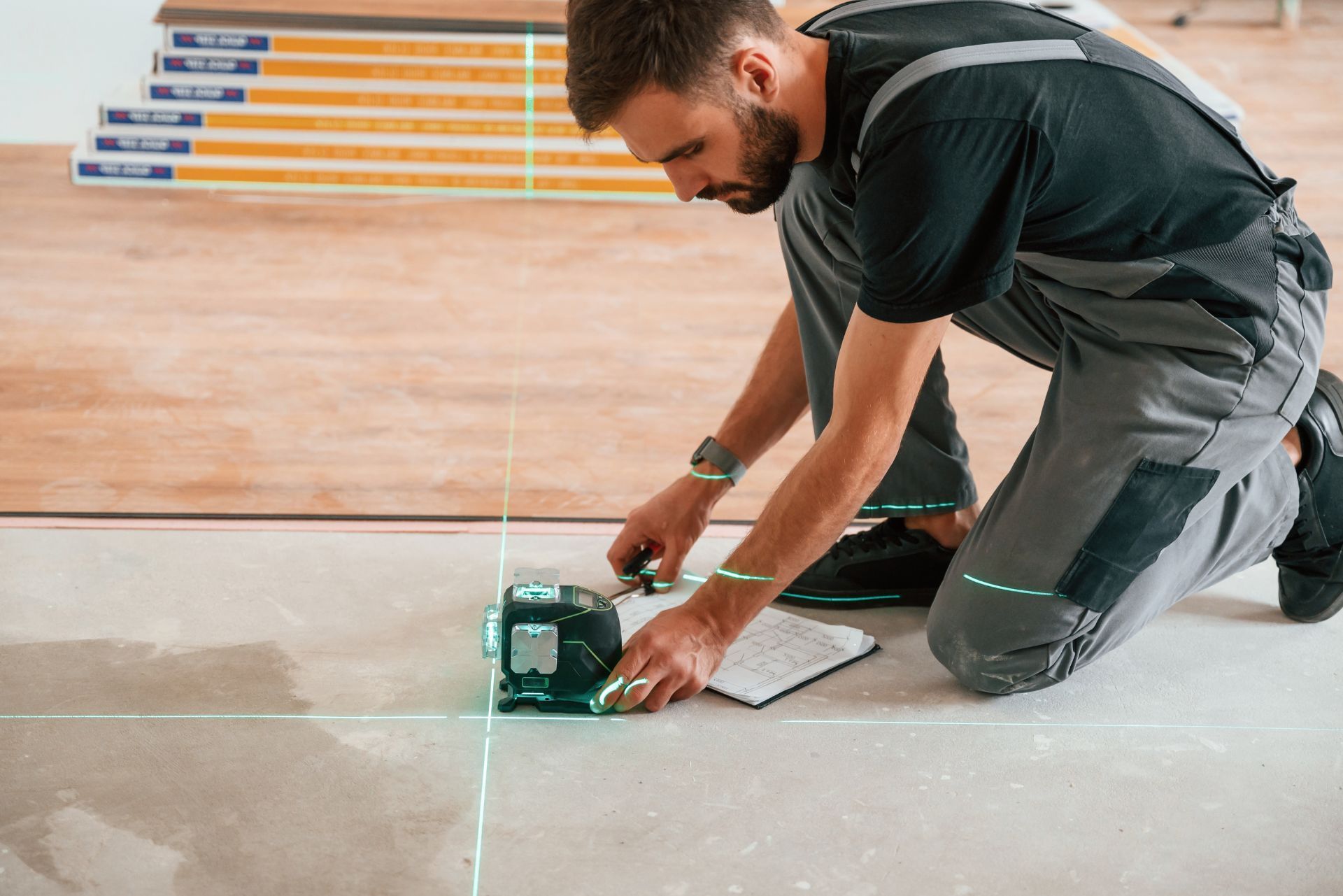Florida Flooring Installer Insurance
8:30am - 5:00pm Mon-Fri
Will Reply in 15min*
Top Recommended Business Insurance Policies

Index
Contact Us
Phone
Location
Florida’s flooring installation industry is booming, with thousands of businesses and professionals working to meet the state’s growing demand for high-quality flooring solutions. However, with this growth comes a critical need for proper insurance coverage tailored specifically to the unique risks and challenges faced by flooring installers in Florida. From rising insurance premiums to evolving building standards, understanding the landscape of flooring installer insurance is essential for contractors and business owners alike.
In this comprehensive guide, we’ll explore everything you need to know about insurance for flooring installers in Florida, including market trends, key risks, recent regulatory developments, and expert insights that can help you make informed decisions to protect your business and clients. To start, it’s important to recognize that the flooring installation industry in Florida is projected to reach a market size of $1.9 billion by 2025, with over 12,000 establishments actively contributing to this growth
according to IBISWorld.
Understanding the Insurance Needs of Flooring Installers
Flooring installers face a range of risks that make insurance not just a legal requirement but a vital part of business continuity. These risks include property damage, workplace injuries, liability claims, and potential disruptions caused by Florida’s unique climate challenges such as hurricanes and flooding. The nature of flooring work often involves heavy lifting, intricate installations, and the use of various tools and machinery, which can lead to accidents if safety protocols are not strictly followed. Moreover, the fluctuating weather patterns in Florida can lead to unexpected project delays, further complicating the financial landscape for flooring installers.
General liability insurance is a cornerstone for flooring contractors, protecting against third-party claims of bodily injury or property damage. This coverage is essential, as it safeguards installers from the financial repercussions of accidents that may occur on job sites, such as a client tripping over a loose floorboard or damage to a homeowner's property during installation. Additionally, workers’ compensation insurance is mandatory in Florida for businesses with employees, covering medical expenses and lost wages in case of workplace injuries. Given the physical nature of flooring installation, workers’ compensation is especially crucial. It not only ensures that employees receive necessary medical care but also protects the business from lawsuits that may arise from workplace accidents.
Beyond these basics, many flooring installers also consider commercial auto insurance if vehicles are used to transport materials and equipment, as well as professional liability insurance to cover errors or omissions in their work. This is particularly important in a field where precision is key; a small mistake in measurements can lead to costly rework and dissatisfied clients. Choosing the right combination of coverages tailored to the specific operations of a flooring business can mitigate financial risks and provide peace of mind. Furthermore, installers may also explore additional coverages such as equipment insurance to protect their tools and machinery from theft or damage, which is vital for maintaining operational efficiency. Understanding these insurance needs not only helps flooring installers comply with legal requirements but also enhances their reputation in the industry by demonstrating a commitment to professionalism and safety.
The Impact of Florida’s Insurance Market on Flooring Installers
Florida’s property and casualty insurance market has been under significant pressure due to frequent storms, rising construction costs, and a historically high volume of insurance claims. This environment directly affects flooring installers, as insurance premiums for contractors tend to reflect the broader market conditions.
Homeowners in Florida paid an average of $4,231 for home insurance in 2022, nearly three times the national average, and rates are expected to continue rising according to The Washington Post. For flooring installers, this means that both their own business insurance and the insurance costs borne by their clients could increase, potentially impacting project budgets and timelines. As homeowners grapple with these rising costs, many may opt for lower-cost flooring options or delay renovations, further influencing demand for flooring services.
Despite these challenges, legislative reforms enacted in 2022 and 2023 have helped stabilize Florida’s property insurance market. The Insurance Information Institute reported that these reforms curtailed abusive legal practices and encouraged new insurers to enter the market, which has begun to reduce volatility according to Triple-I. However, experts caution that insurance rates are unlikely to dramatically decrease in the near term due to ongoing environmental and economic pressures. In addition, the unpredictability of climate change continues to pose a risk, as more severe weather events could lead to spikes in claims, thereby perpetuating the cycle of rising premiums.
Workers’ Compensation Insurance: A Growing Concern
Workers’ compensation insurance is a critical component for flooring installers, but recent developments have raised concerns within the industry. In October 2024, the Florida Roofing and Sheet Metal Contractors Association voiced apprehension about proposed decreases in workers’ compensation rates, warning that such reductions could lead to an influx of inexperienced labor and higher future claims reported by Florida Trend.
For flooring installers, this highlights the importance of balancing insurance cost savings with maintaining high standards of workforce training and safety protocols. Cutting corners on insurance or labor quality can expose businesses to costly claims and reputational damage. Furthermore, as the industry faces a labor shortage, the temptation to hire less experienced workers increases, which could lead to subpar installations and additional liability. Flooring installers must therefore invest in comprehensive training programs and prioritize safety measures to mitigate risks and ensure that their teams are well-equipped to handle the demands of the job.
Moreover, the implications of workers’ compensation extend beyond immediate financial concerns. A well-trained workforce not only reduces the likelihood of accidents but also enhances the overall quality of work, leading to higher customer satisfaction and repeat business. As flooring installers navigate the complexities of the insurance landscape, fostering a culture of safety and excellence will be essential for long-term success in an increasingly competitive market.

Incorporating Building Resiliency into Flooring Installation
Florida’s unique climate challenges, including hurricanes and water intrusion, have prompted a state-wide push toward more resilient building materials and construction practices. This trend is particularly relevant for flooring installers, as the choice of materials and installation techniques can significantly affect a building’s durability and insurance risk profile.
In July 2025, the Florida Office of Insurance Regulation partnered with the University of Florida to promote home building resiliency materials designed to mitigate water intrusion. This initiative aims to enhance community resilience and potentially reduce insurance premiums by encouraging the use of innovative, adaptive materials according to the Florida Office of Insurance Regulation.
Lisa Sundahl Platt, Director of the University of Florida's Sustainable Adaptive Material Practicum Lab, emphasizes that integrating smart home technologies and advanced materials can further improve building performance and resilience. Flooring installers who stay informed about these developments and adopt resilient materials can position themselves as leaders in the market while helping clients reduce long-term risks.
Why Resilient Flooring Matters for Insurance
Insurance companies increasingly consider the quality and resilience of building materials when underwriting policies. Floors that resist water damage, mold, and wear can reduce the likelihood of claims related to property damage. For flooring installers, offering resilient flooring options not only meets evolving building codes but can also be a compelling selling point for clients concerned about insurance costs and property protection.
Moreover, the integration of eco-friendly materials into resilient flooring options is gaining traction. Many homeowners are now prioritizing sustainability alongside durability, seeking products that not only withstand Florida's harsh conditions but also minimize environmental impact. Flooring installers can capitalize on this trend by providing options made from recycled materials or those that are sustainably sourced, appealing to the growing demographic of environmentally conscious consumers.
Additionally, the education of clients on the benefits of resilient flooring is crucial. Installers can play a pivotal role in guiding homeowners through the selection process, explaining how specific materials, such as waterproof vinyl or engineered wood, can withstand the rigors of Florida's climate. By fostering a deeper understanding of these materials, installers can help clients make informed decisions that enhance the longevity of their homes, ultimately leading to greater satisfaction and loyalty.
Strategies for Flooring Installers to Manage Insurance Costs
Given the high cost of insurance in Florida and the complex risk environment, flooring installers need effective strategies to manage their insurance expenses without compromising coverage quality.
One key approach is to work closely with insurance brokers who specialize in construction and trade contractor insurance. These professionals can help identify tailored policies that address specific risks while avoiding unnecessary coverage that inflates premiums. By leveraging their expertise, flooring installers can navigate the intricacies of insurance options, ensuring they select plans that not only meet legal requirements but also provide adequate protection against potential liabilities.
Another strategy is investing in comprehensive safety training and workplace risk management programs. Reducing workplace injuries and claims history can lead to lower workers’ compensation premiums over time. Additionally, maintaining good relationships with insurers and demonstrating a commitment to quality and compliance can improve underwriting outcomes. Regularly conducting safety audits and implementing feedback from employees can create a culture of safety that not only protects workers but also enhances the company’s reputation, making it more attractive to insurers.
Leveraging Industry Trends and Legislative Reforms
While insurance rates remain high, recent legislative reforms have brought some stability to Florida’s insurance market. According to a study by Karen Clark & Co., these reforms have significantly mitigated future premium increases, though the state’s exposure to frequent storms and rising construction costs means some of the highest property premiums in the country are likely to persist as noted in Insurance Journal. These reforms not only affect costs but also the types of coverage available, making it crucial for flooring installers to stay updated on any changes that could impact their business operations.
Understanding these market dynamics allows flooring installers to anticipate cost trends and plan accordingly. Staying informed about policy changes and industry developments can help businesses adapt and negotiate better insurance terms. Furthermore, participating in industry associations can provide valuable insights into best practices and emerging trends, enabling installers to share experiences and strategies with peers. Networking with other professionals can also lead to collaborative efforts in risk management, such as pooling resources for safety training programs or sharing information on reliable subcontractors, ultimately leading to a more robust approach to managing insurance costs.

Conclusion: Protecting Your Flooring Business in Florida
Florida’s flooring installation industry is vibrant and growing, but it operates in a challenging insurance landscape shaped by environmental risks, legislative reforms, and market pressures. Flooring installers must carefully navigate these factors by securing appropriate insurance coverage, adopting resilient building practices, and implementing robust safety measures.
By staying informed about industry trends and leveraging expert insights, flooring contractors can protect their businesses from financial risks while positioning themselves as trusted partners in Florida’s evolving construction market. For more detailed information on the state’s insurance regulations and market conditions, resources such as the
Florida Office of Insurance Regulation provide valuable guidance and updates.








